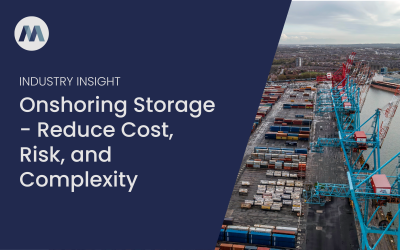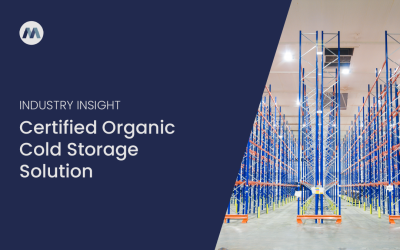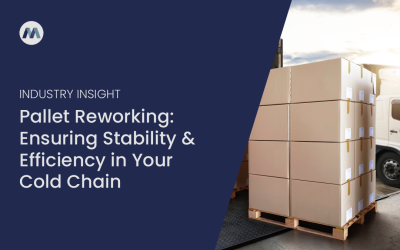News & Articles
How will May’s new deal affect the food sector?
Publication of the UK/EU Withdrawal Agreement has resulted turmoil in the media, with MPs and leading national figures coming out on both sides and in between. Theresa May is battling to persuade parliament and the nation that her deal is the best option but where does it leave the food logistics sector?
What do we know?
The draft agreement provides for a transitional period from 29th March 2019 to 31st December 2020. This is designed to give both sides time to negotiate and agree a permanent trade deal and can potentially be extended.
During this time the UK would no longer be a member state of the EU, but would retain full access to the EU market.
Essentially not much would change with regards to food distribution and storage during the transition. Tariffs, customs registration and food standards rules would not change, haulage rights, rules and licence would remain the same, and workers would retain their freedom of movement.
However, the draft also includes the contentious Northern Ireland Protocol (also known as the backstop). This comes into force if a deal is not reached, or an extension on the transition period agreed, by the end of 2020. In this scenario the EU and UK will enter a single customs territory.
This will make things trickier for all import and export businesses. While tariffs and customs regulations on food would be unaffected, goods moving from the UK mainland to Northern Ireland will be subject to some checks. Additionally, there would be no automatic access to the EU or Ireland for haulage operators, and it is likely that UK CPC licences would not be valid in the EU.
Freedom of movement and the recognition of professional qualifications would also no longer apply if the Northern Ireland Protocol is actioned.
What happens next?
The EU Parliament and member states are yet to agree to the text, and it still needs to be endorsed by the UK Parliament. The prime minister has faced strong opposition to this draft and several MPs have insisted they will block the deal when it comes to the House of Commons.
This means a ‘no deal’ Brexit is still a very real possibility, and the FSDF advises businesses to refer to the Government’s Partnership Pack for guidance on this eventuality.
What would No Deal look like?
It comes as no surprise that leaving the EU with no deal would have the most profound impact on our industry.
Failure to reach a withdrawal agreement means that the UK would exit the EU and all trade and other arrangements would be undertaken as a ‘third country’.
This would mean:
- Customs duty on goods exported or imported to or from the EU
- An Import Declaration when goods enter the UK and an Export Declaration when they leave
- Safety and Security Declarations on both exports and imports
- Excise goods will no longer be managed by the Excise Movement Control System (EMCS) when moving between the UK and the EU.
All aspects of exporting to the EU would be subject to new regimes. UK hauliers would require international permits, and of course new immigration policies would be put in place.
Where do we go from here?
The UK has been in the EU for over 40 years and as yet no one can be quite sure what the political or economic landscape will look like after we leave. But as Benjamin Franklin said, ‘by failing to prepare, you are preparing to fail’.
The nature of the food industry means planning is always crucial, but if leaving the EU with no deal is even a possibility, taking steps to get ready now really is vitally important.
Ask yourself, can you get the ingredients required to manufacture your products now? Can you export products ahead of potential customs changes? Is stockpiling an option?
From bulk storage for finished products to storage of ingredients, a cold storage partner can help you put the necessary provisions in place to help protect your business during Brexit and secure the best possible outcome from the opportunities it presents.
News & Articles
Onshoring Your Storage
Onshoring Onshoring is the strategic move of bringing food production, pallet storage and distribution closer to the end market in which...
Organic Certified Cold Storage Solutions
At Magnavale, we specialise in temperature-controlled storage and value-added services for the food sector. We have several...
Pallet Reworking: Ensuring Stability and Efficiency in Your Cold Chain
At Magnavale, we offer temperature-controlled storage solutions alongside essential cold chain services, including pallet reworking...
Contact Us
Head Office:
Magnavale Ltd, Park Road,
Holmewood Industrial Park,
Chesterfield, S42 5UY


